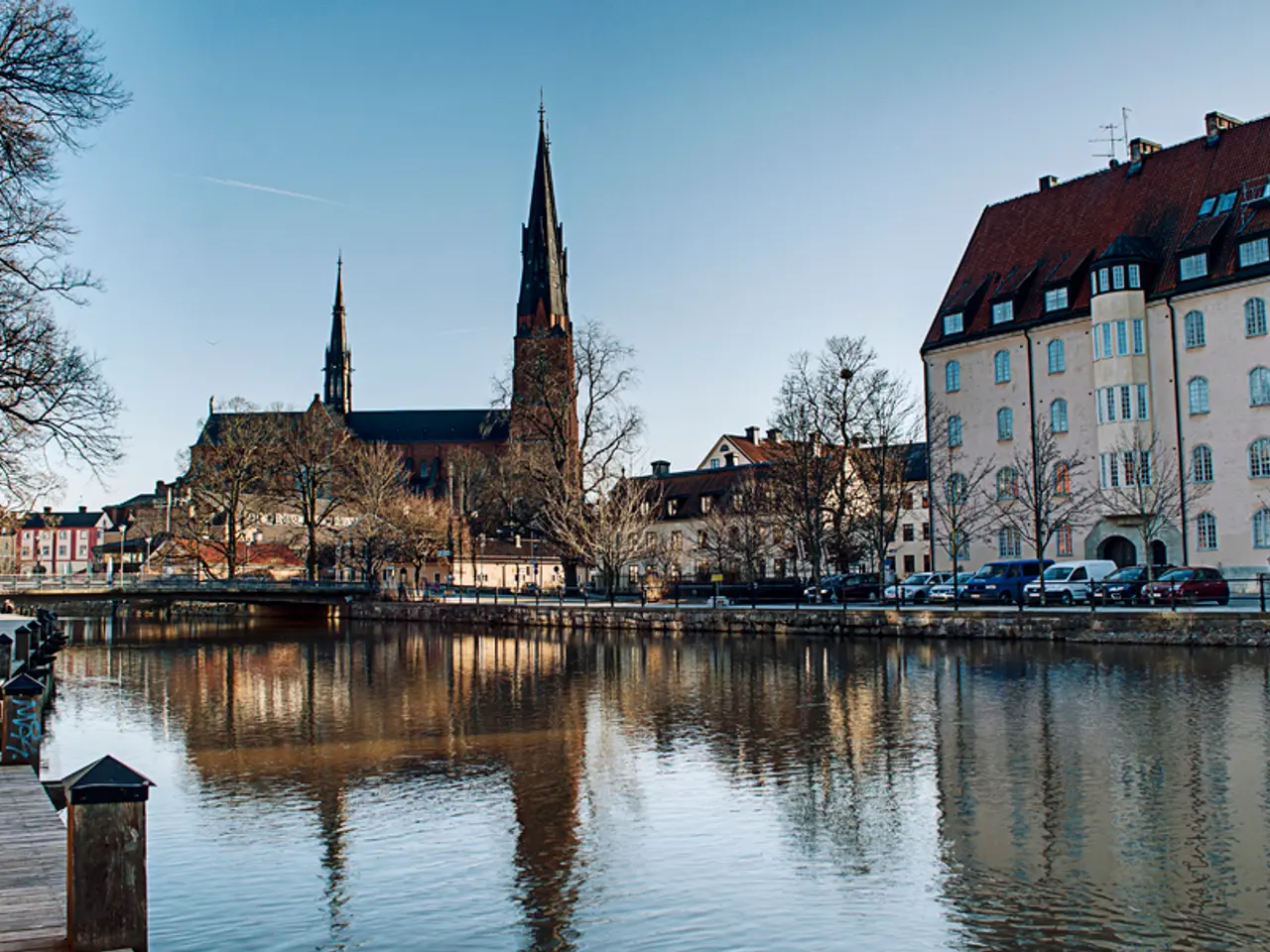Berlin's ongoing controversy over swimming in the Spree river
The city of Berlin is witnessing a growing movement to reintroduce public swimming in the Spree River, which has been banned since 1925 due to pollution concerns. At the forefront of this movement is the group Flussbad Berlin, who argue that water quality has significantly improved over the last decade and is generally good enough for swimming during favourable conditions.
Flussbad Berlin has been advocating for years to bring public bathing back to the side-channel of the Spree. The group has organised public swim-ins as acts of protest, with around 200 people recently participating in such an event. They have also been lobbying for official changes to the ban.
To address safety concerns, Flussbad Berlin has obtained several million euros in grants to study and address issues such as riverbed debris and potential pollution spikes after heavy rains. They collaborate with scientific experts who monitor water quality in real time and provide forecasts on when the river is safe for swimming. A flagpole signaling system has been installed to inform swimmers of water safety conditions.
In a recent development, the city of Berlin has included funding for the construction of a pilot bathing spot along the Spreekanal in next year's urban development budget. This move signals a potential shift in the city's stance on public swimming in the Spree.
The water quality of the Stadtspree is within acceptable ranges, except after very heavy rains, and it is unclear whether the Spreekanal is suitable for bathing from a hygiene point of view due to additional, as-yet-unidentified pathogens. Flussbad Berlin has partnered with the Berlin Centre of Competence for Water (KWB) to study the water quality of the Spreekanal. A model has been created by KWB to generate real-time estimates of water quality conditions in the Spreekanal, with the up-to-date forecasts being posted on badberlin.info.
The push for public swimming in the Spree River is not a new phenomenon. Around the turn of the century, there were numerous bathhouses along the Spreekanal and the river. However, these bathhouses were shut down in 1924 due to hygiene issues and new bathing regulations.
The movement to reintroduce swimming in the Spree River is not limited to Berlin. Paris plans to open three public swimming spots along the Seine this year, demonstrating a global trend towards reclaiming urban waterways for recreational use.
The founders of Flussbad Berlin, Jan and his brother Tim Edler, have been interested in swimming in the Spree since the late 1990s. Their passion for the cause was recognised in 2011 when they won a prestigious international sustainable architecture award, which led to several million euros in grants.
Despite the ongoing efforts, the swimming remains officially prohibited in the Spree River within Berlin. However, the combination of ongoing environmental improvements, community activism, and scientific monitoring aims to bring safe public swimming back to this historic urban waterway.
[1] Flussbad Berlin [2] Berlin Centre of Competence for Water [3] badberlin.info [4] The Local [5] Deutsche Welle
- The Berlin Centre of Competence for Water (KWB), partnered with Flussbad Berlin, creates real-time water quality estimates for the Spreekanal and posts updated forecasts on their website, badberlin.info.
- Despite the ongoing efforts, the brothers Jan and Tim Edler, founders of Flussbad Berlin, aim to bring safe public swimming back to the historic urban waterway that is the Spree River in Berlin.
- In line with the global trend towards reclaiming urban waterways for recreational use, Paris plans to open three public swimming spots along the Seine this year, parallel to the movement towards public swimming in the Spree River in Berlin.




